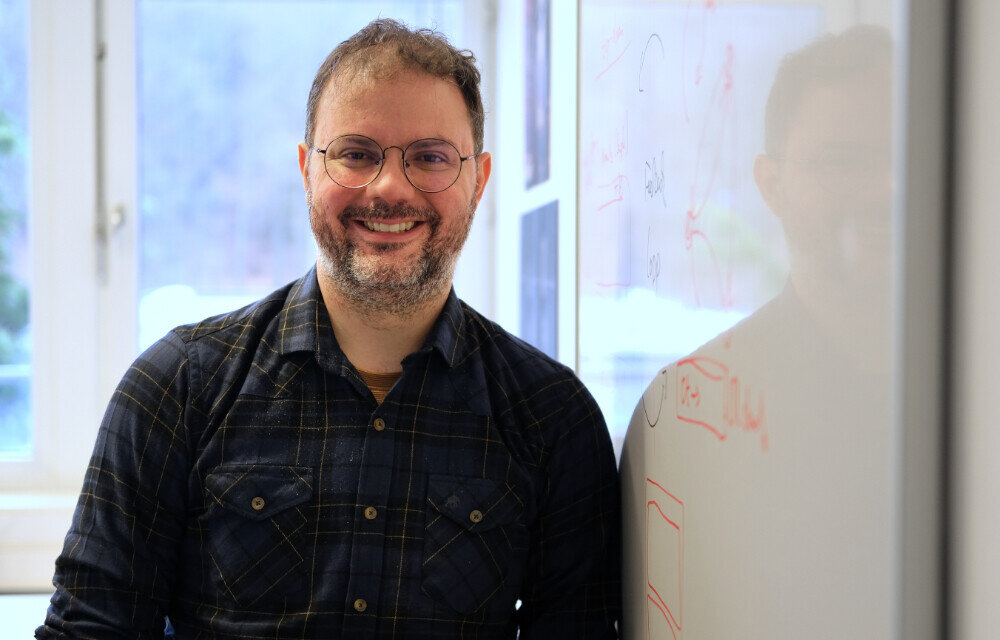Humboldt Fellow Begins Research Stay at Saarbrücken Computer Science Department
Leopoldo Motta Teixeira, PhD in Computer Science, recently started a one-year research stay as guest professor at the Chair of Software Engineering of Sven Apel at Saarland University. The scientist from the Universidade Federal de Pernambuco (UFPE) in Recife, Brazil, mainly focuses on software engineering questions. The stay is financed by a Capes-Humboldt research fellowship of the Alexander von Humboldt Foundation.
In his project “Analysis of Variability over Time and Space,” Leopoldo Teixeira is working on the analysis of software and its variants. The computer scientist is developing methods that can be used to analyze as efficiently as possible whether software functions correctly in all its variations and also whether it continues to work without errors after it has been subsequently changed.
“Think of software as a car that you can customize to your liking. The car is the software, and the possible configurations of the car – for example, with or without a navigation system, with automatic windows but without air conditioning, etc. – are variants of one and the same software,” Teixeira explains. While the car analogy is very illustrative for a basic understanding, it doesn’t begin to address the complexity of the software reality. Software such as the Linux kernel, which runs on home computers, forms the basis for the Android operating system for smartphones and is used in countless highly specialized industrial controllers, has more program variants than there are atoms in the universe. “So, if one wants to know how a subsequently introduced software feature in the kernel affects all the existing variants, it is impractical to work through all of them individually. This is beyond the capabilities of even the fastest supercomputers,” says Leopoldo Teixeira.
The computer scientist is therefore investigating the key properties of analysing this kind of software as part of his research stay at Saarland University in collaboration with computer science professor Sven Apel. He wants to find out which correlations between software variants can be used to see how changing a smaller subset of variations affects the totality of all variants. “So an ordinary home computer could handle these calculations in a few seconds,” Teixeira says.
Professor Sven Apel adds: “In the long term, the project could change the approach to software development and contribute to more reliable and efficient software. We are therefore all the more pleased to have the support of the Alexander von Humboldt Foundation to welcome such an outstanding scientist as Leopoldo Teixeira here with us at the Saarland Informatics Campus.”
Background Humboldt Research Fellowship
With the Humboldt Research Fellowship, the Alexander von Humboldt Foundation sponsors researchers with outstanding qualifications from all over the world. Even if researchers are already further advanced in their academic career, they can still realize their research project in Germany with the Humboldt Research Fellowship for Experienced Academics. The monthly fellowship amounts to 3,170 euros. It can be applied for between 6 and 18 months and divided into up to three stays within three years.
More: https://www.humboldt-foundation.de/en/apply/sponsorship-programmes/humboldt-research-fellowship
Website Chair Software Engineering: https://www.se.cs.uni-saarland.de/index.php
Background Saarland Informatics Campus:
900 scientists (including 400 PhD students) and about 2100 students from more than 80 nations make the Saarland Informatics Campus (SIC) one of the leading locations for computer science in Germany and Europe. Five world-renowned research institutes, namely the German Research Center for Artificial Intelligence (DFKI), the Max Planck Institute for Informatics, the Max Planck Institute for Software Systems, the Center for Bioinformatics and the Cluster for “Multimodal Computing and Interaction” as well as Saarland University with three departments and 24 degree programs cover the entire spectrum of computer science.
Editor:
Philipp Zapf-Schramm
Competence Center Computer Science
Saarland Informatics Campus
Phone: +49 681 302-70741
E-Mail: pzapf@mmci.uni-saarland.de
Press photos for download for use free of charge in connection with this press release:
Die Öffentlichkeitsarbeit am Saarland Informatics Campus wird unterstützt durch das Kompetenzzentrum Informatik Saarland, gefördert aus Mitteln des Europäischen Fonds für regionale Entwicklung (EFRE) und Mitteln der Staatskanzlei Saarland.




